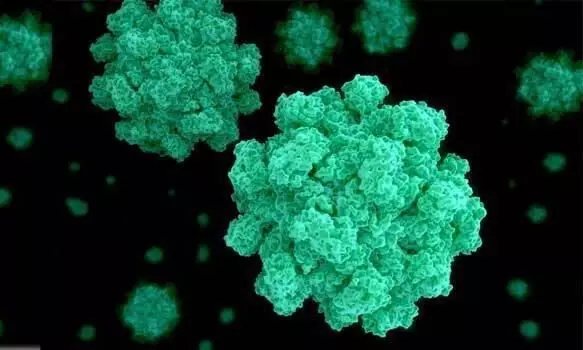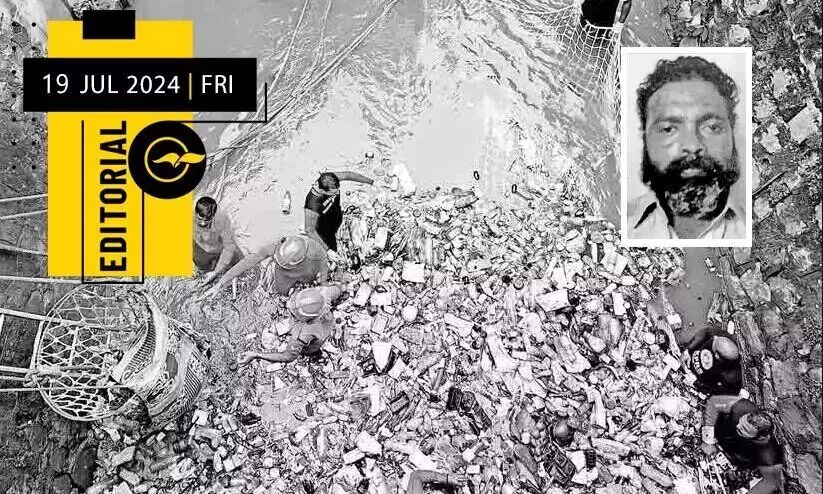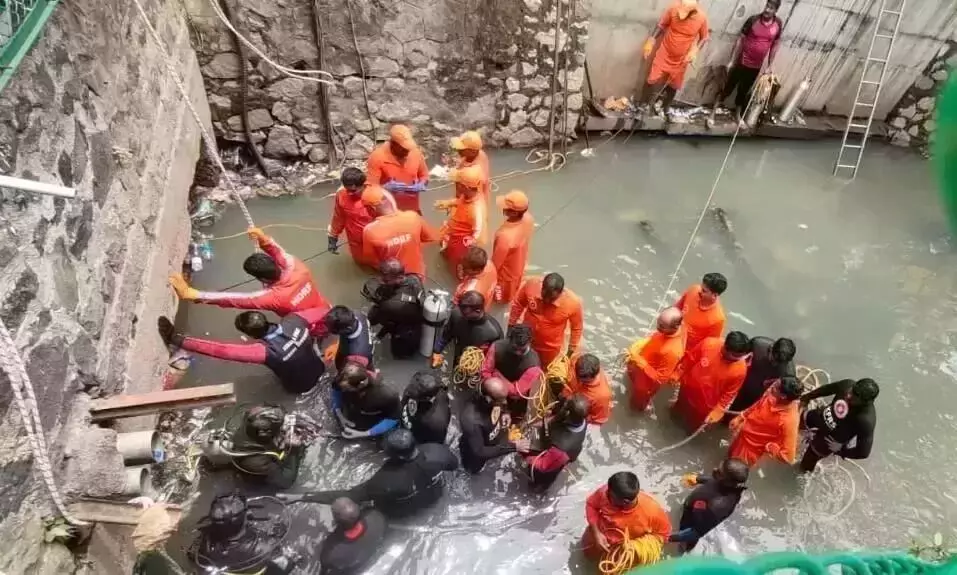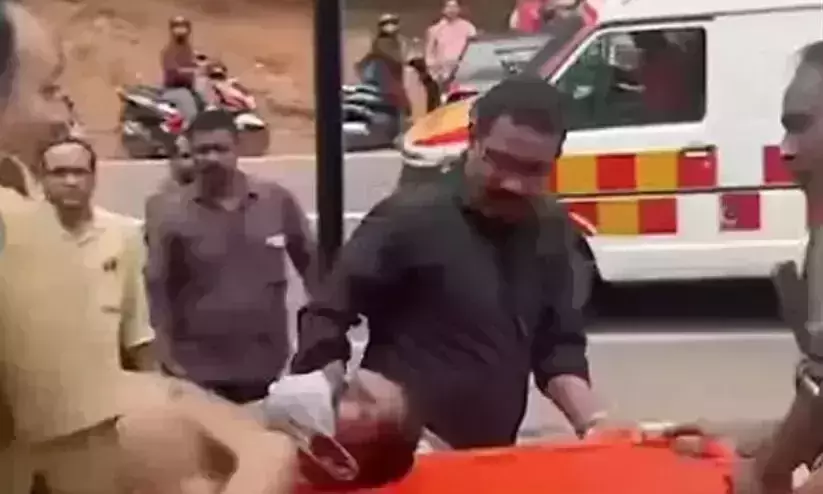
The endless martyrdoms of the ‘Joys’
text_fieldsKeala government has announced compensation to the family of Joy, a sanitation worker who lost his life while cleaning a canal in the heart of the capital city; It has also been said that a house will also be provided for his family. Is this the end of the matter? What assurances and precautions have the authorities put forward so that another life like Joy's does not end up suffocating in the pits and waste gutters of the state? Will all that be discussed when the next disaster occurs? About nine years ago, in November 2015, cleaning workers Bhaskara and Narasimha, natives of Andhra, suffocated while cleaning waste from a manhole in Kozhikode, along with an auto driver P. Naushad, who plunged into an adventure to rescue them; and all became martyrs. There were many similar discussions back then. Self-criticisms, centralized waste management schemes, promises of life-saving equipment to waste disposal workers, recommendations to use advanced machinery, compensation and more. But every drain in the rapidly urbanizing towns of Kerala has become more and more waste-filled, and poor contract labourers plunge into the piled-up waste ditches and canals without any machinery or safety equipment to clear the blockages and save people from seepage and water logs. If we ask whether there has been any change in the attitude of the authorities, in the community's mind, or the conditions of the workers, the answer will disappoint us. There are no discussions as the news about the people who had gone to clean the septic tanks and were involved in the disaster has been confined to just the local pages.
It is people like Joy who go down and clean all the garbage-carrying streams, canals and waste ponds in our state. None of them willingly takes up this life-threatening, low-paying job, but are forced to do it just for want of a better means of livelihood. None of us even thinks about how they live except when they die in tragedies like this. Anyone who makes a big fuss about paying a user fee of Rs 50 for the 'Harita Karma Sena' project, which plays a big role in making the state solid waste-free, does not even respect their life problems and the dangerous conditions of the work they do. A week ago, a huge conclave was organized in Kochi on the use of artificial intelligence in various fields. At the conclave, which was attended by prominent ministers including the CM and several leaders in IT, there were big announcements about the use of artificial intelligence technology in the production and service sectors as well. Kerala is also the first to establish a digital university in the country. These are two important examples of technology surging forward in its most efficient way. But then whose stubbornness is it to continue with the old method only in the matter of waste disposal even as we advance along the new path?
The second-anniversary speech of the first Pinarayi government contained a boast about the 'Bandicoot robot to clean the sewers showing compassion to the underprivileged’. Then why, after all these years, labourers from underprivileged communities are being pushed to the cesspools and deaths? Are these systems meant only to be exhibited in IT fairs where industrial and cultural leaders come and applaud? Without giving up the caste-capitalist notion that a cleaner's life is less valuable than that of machinery, it is impossible to hope that this will change.
But Keralites cannot blame the government alone on this issue. Kerala society is far behind in the basic civic value of responsible waste management. The same people who follow the law when they go to countries where fines have to be paid for spitting or littering in public places, treat the roads, canals and public ponds in our own country as places to dump garbage. These waste deposits have played a major role in the recent resurgence of waterborne diseases and communicable diseases in Kerala. The general approach of the people is that others are responsible for our waste. This has to change. It is welcome that the meeting chaired by the Chief Minister decided to take strict action against those using banned plastic carry bags and products. But it should not end with just that. Full vigilance and awareness should also be given to organic and inorganic waste management and waste management at source. If another cleaner dies while working, it can only be called murder. And let us remember that not a single Kerala can be absolved of the blame and collective responsibility for such a sinful act.
 Also Read:Kerala reports 19 norovirus cases, spreads via sewage and food
Also Read:Kerala reports 19 norovirus cases, spreads via sewage and food

























